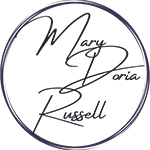Excerpt from A Thread of Grace
Whenever he looked in a mirror, he would see his mother’s eyes: china blue and frightened. Frightened of dirt, of her husband, of illness, and of God. Her son, too, was frightened. Frightened of priests and hunters, of cigarette smokers and skiers, of liberals, journalists, germs and dirt, of gypsies, judges, and Americans. He was frightened of being wrong, of being weak, of being effeminate. Frightened of poets and of Poles, of academics and Jehovah’s Witnesses. Frightened of moonlight and horses, of snow and water and the dark. Frightened of microbes and spirochetes, of feces, and of old men, and of the French.
The very blood in his veins was a danger to him. There were birth defects and feeblemindedness in his incestuous family. His uncle-father was a bastard, and Klara’s son worried all his life that unsavory gossip about his ancestry would become public. He was frightened of sexual intercourse and never had children, afraid his tainted blood would be revealed in them. He was terrified of cancer, which took his mother’s life, and horrified that he had suckled at diseased breasts.
How could anyone live with so much fear?
His solution was to simplify. He sought and seized one all-encompassing explanation for the existence of sin and disease, for all his failures and disappointments. There was no weakness in his parents, his blood, his mind. He was faultless; others were filth. He could not change his china blue eyes, but he could change the world they saw. He would identify the secret source of every evil, and root it out, annihilating at a stroke all that threatened him. He would free Europe of pollution and defilement–only health and confidence and purity and order would remain!
Are such grim and comic facts significant, or merely interesting? Here’s another: the doctor who could not cure Klara Hitler’s cancer was Jewish.
